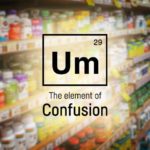There’s arguably never been a time when we’ve had access to more information, on any subject. We are constantly connected; constantly surrounded. It’s both a blessing and a curse. And nowhere is this more apparent than in the world of nutrition.
Nutrition is a relatively new science; less than 200 years old. Like all sciences, it is always being added to and always evolving. For a lot of those years nutrition scientists worked away unseen; their research adding to the overall picture of what was known but passing most ordinary people by. Healthy eating guidelines were broadly informed by that picture and broadly accepted.
Now, every new piece of research is accessible and open to commentary – and that commentary can come from anyone. In our modern media landscape, anyone can be a publisher, and anyone can portray themselves as an expert – whether or not they actually are. It doesn’t take much scrolling through any social media feed to come across someone with a story to tell and usually something to sell. Whether what they are selling is based on solid, evidence-based science seems to matter less and less.
It’s easy to see how this has led to a lot of confusion about what and how to eat and how to be truly healthy. With social media wellness warriors proclaiming that ‘everything you’ve been told about nutrition is wrong’ and pushing increasingly extreme ways of eating, it can be very tempting to throw up our hands and give up. Not even the experts can agree on what’s healthy, we reason, so why should I bother?
And yet what’s known, really, about nutrition science is accepted – and agreed – by the true nutrition experts around the world. Although the science is constantly moving and always being added to, there is broad consensus among the nutrition science community. This just tends to get a bit lost in this new ‘confusion economy’, and drowned out by the noise.
The True Health Initiative works to spread the fundamental evidence and consensus-based truths about lifestyle as medicine. Decades of published research, it says, support six core principles of healthy living that most effectively add years to lives, and life to years. They are broadly classified into the categories: forks (good nutrition), feet (moving our bodies), fingers (not smoking or drinking), sleep (getting enough), stress (minimising) and love (making meaningful connections).
Knowing – and acting on – these, the Initiative says, is the key to lifelong good health.
That and a healthy dose of skepticism when we’re evaluating any noisy new nutrition claim, should set us on the right track to health.
Always read the label and use as directed. Vitamins and minerals are supplementary to and not a replacement for a balanced diet. If symptoms persist, see your healthcare professional. Wondermins, Auckland.
